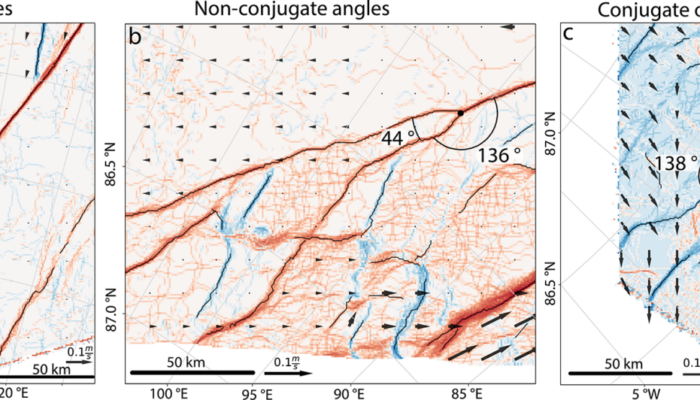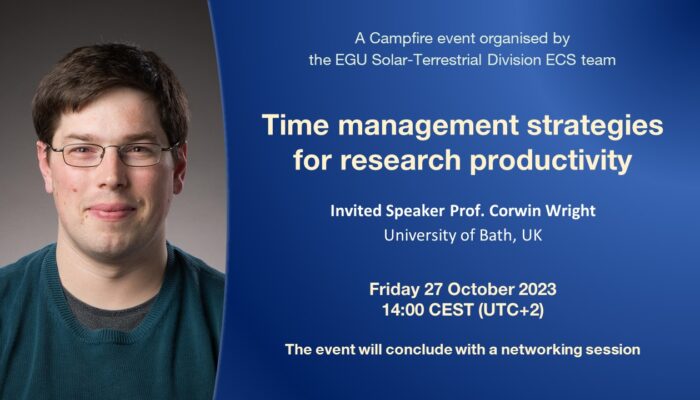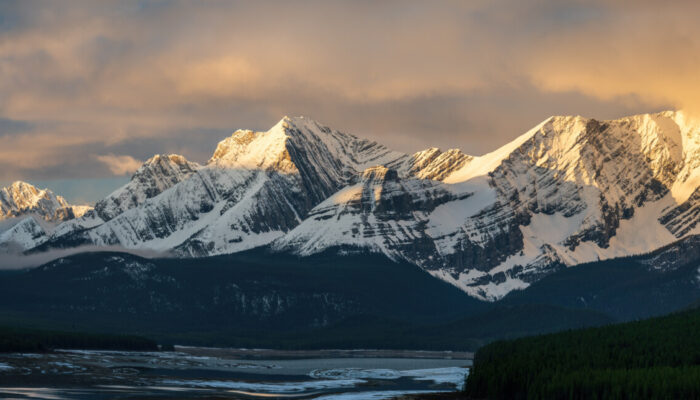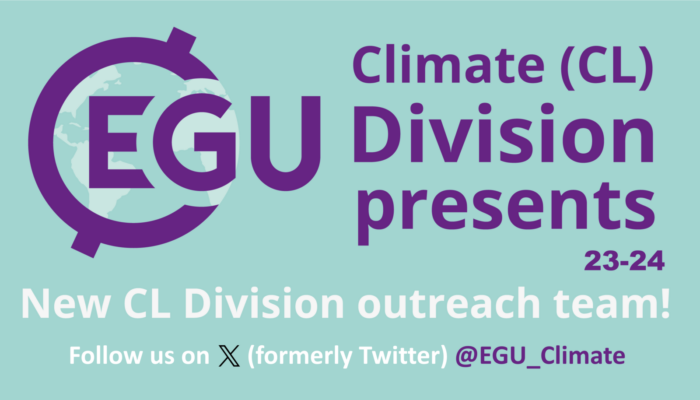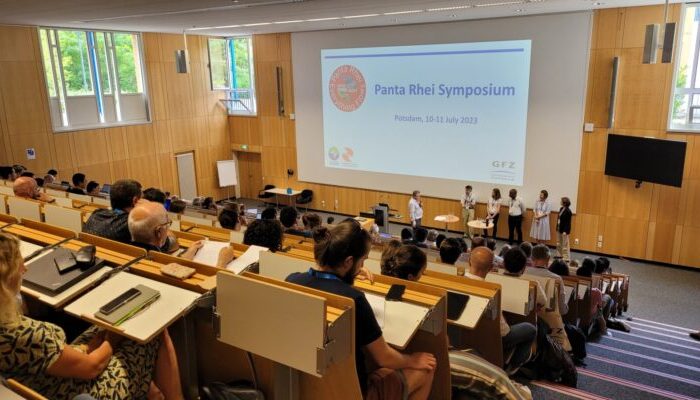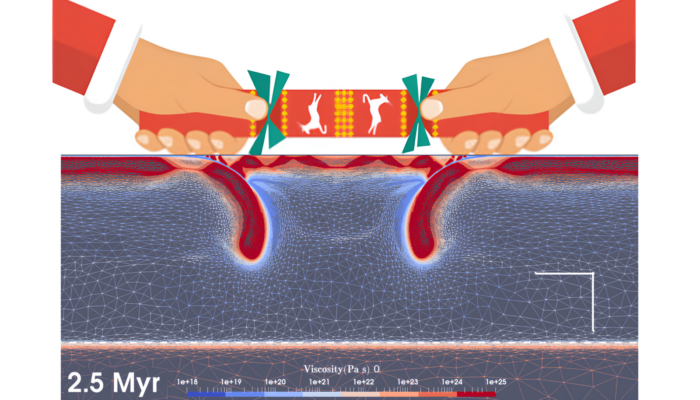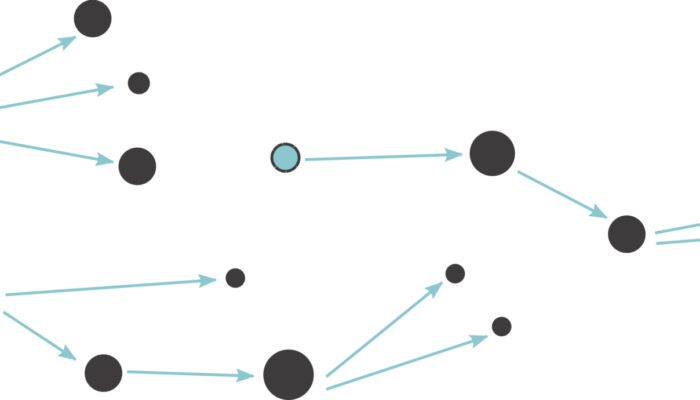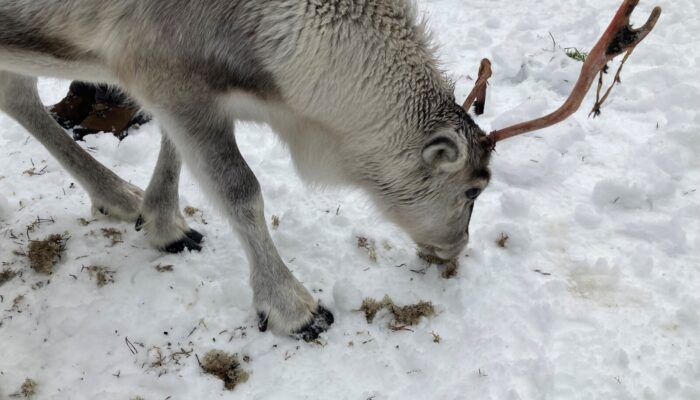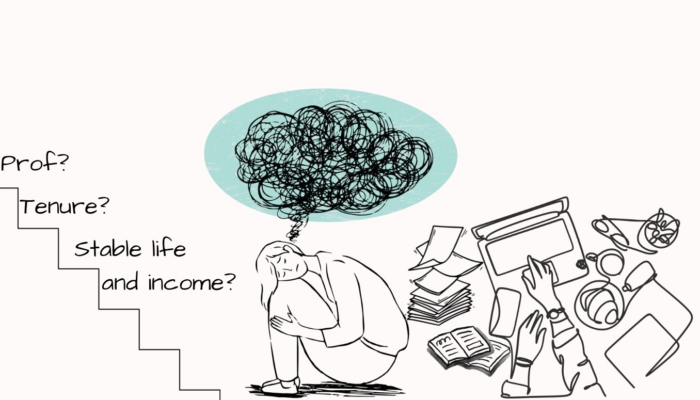Most of the time when we speak or read about sea ice it is probably about its extent or thickness or the decline in both, or maybe even about the microorganisms living inside and underneath it. How sea ice breaks and deforms is normally not so much the topic of general discussions. This is actually a really important process that we do not know enough about, at the same time it is pretty co ...[Read More]
If you didn't find what you was looking for try searching again.
Solar-Terrestrial Sciences
ST-ECS Networking Campfire on “Time management strategies for research productivity”
Life in academia can be complex, involving handling multiple roles while developing and sustaining a successful career. Therefore, it can be challenging to balance research responsibilities with other commitments. Understandably, effective time management is essential for researchers to be productive and to achieve their goals, without sacrificing other important matters in life. The Early Career ...[Read More]
GeoLog
What does open science mean in the real world? My experiences in becoming EGU’s editorial manager
For nearly 7 months now, I have held the position of EGU’s editorial manager. However, my interest in and passion for open access and open science in general goes back several years. Here, it is important to make the distinction: open science is a broad concept that encompasses transparency and accessibility in the entire research process, while open access is an important component of open scienc ...[Read More]
Hydrological Sciences
How far can we take the DORA rules?
DORA stands for Declaration on Research Assessment, also known as the San Francisco Declaration on Research Assessment. The declaration was developed back in 2012 during the Annual Meeting of the American Society for Cell Biology in San Francisco and has become a worldwide initiative since then. The country where you are currently reading this post has most probably signed the declaration (the cou ...[Read More]
Climate: Past, Present & Future
EGU Climate Division presents: Outreach Team 2023 edition
The European Geosciences Union (EGU) is a multidisciplinary organization, encompassing various fields within the geosciences. Each field is represented by its own Division, within which a number of volunteer roles exist. These roles include the President and Deputy President, a Programme Group Chair, Science Officers, Early Career Scientist Representatives, and an Outreach Team. Every year at the ...[Read More]
Natural Hazards
When ten years of research come to an end – The final Panta Rhei Symposium
On the 10th and 11th of July 2023, the final symposium for the scientific decade, “Panta Rhei – Everything Flows: Change in Hydrology and Society” of the International Association of Hydrological Sciences (IAHS), took place at the German Research Centre for Geosciences (GFZ) in Potsdam. During these two days, 150 hydrologists, engineers, social scientists and practitioners from 32 countries gather ...[Read More]
Geodynamics
Dual inward dipping subduction: A Christmas Cracker Model
A recent research finds that dual inward dipping subduction framework, after considering thermal dependent deformation mechanisms, can pull apart the middle overriding plate (Lei and Davies, 2023), just like pulling Christmas crackers from both ends! Dual inward dipping subduction (DIDS) occurs when the overriding plate is decoupled with two subducting slabs dipping towards each other. DIDS is fou ...[Read More]
Seismology
Statistical earthquake forecasting – is that possible?
This blog post will take you through what can and can’t be done with statistical earthquake forecasting. We are happy to have it explained by Dr. Leila Mizrahi, who is a postdoctoral researcher at the Swiss Seismological Service (SED) at ETH Zürich. Let’s get started! “My research topic is earthquake forecasting” – “Oh, really, I thought that’s not possible! So, when is the next one going to ...[Read More]
Cryospheric Sciences
Small step for reindeer – large leap for humankind?
Since several decades, there’s a lot of discussion in the permafrost ecosystem community on “rewilding” and “return to a natural state” in order to protect ecosystems and to reduce the impacts of climate change. Reindeer and other herbivores influence the insulation regime of the ground and could thereby preserve the frozen state of permafrost ground. Is there a way to utilise this effect to our b ...[Read More]
Geodesy
Postdoc Diaries: Challenges of Postdoc Life
Hello, it’s us again! Coming back from the holidays, there couldn’t be a more fitting way to kick off a new blog season than by delving into the world of postdocs or to put it more precisely, by stepping into the shoes of a postdoc. As we try to reacquaint ourselves with our daily routines, I think it’s a perfect moment to empathise with those navigating postdoctoral life’s uniqu ...[Read More]

